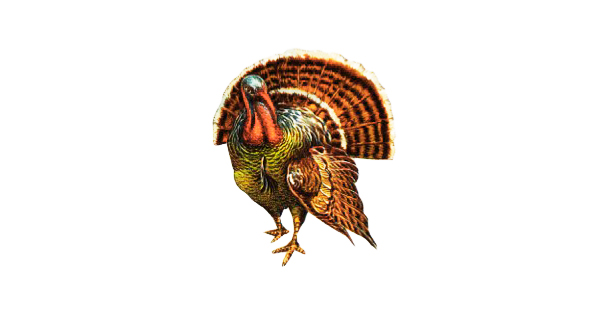Are your Thanksgiving plans coming along? It’s time to get down to business! But be prepared. Somewhere between your menu planning and grocery shopping the turkey dilemma will surface. Stick with a traditional meal? Opt for something vegetarian this year? Insist on vegan?
The holidays often force healthy eating habits out the window. Traditions run strong. It’s hard to imagine dinner without “Tom” at the center of the table. Throw into the mix a long weekend at your in-laws, or time with less food conscious friends, and you really get off track. Regardless of circumstances, healthy eating and holiday meals seem to always be at odds.
Fear not. There are many ways to narrow this gap. A little insight goes a long way toward making healthier choices. Before you rush to the grocery store to pick-up a frozen bird, here are a few things to consider:
Growing them big:
Today’s standard, full-grown turkey is between 30 and 36 lbs. Their wild counterparts weigh-in at half that size—about 18 lbs. The FDA maintains that “no hormones are approved for use in turkeys,” but that hasn’t tied the hands of large commercial breeders:
- Growth-enhancing drugs like ractopamine are still used in feed
- Selective breeding continues to abnormally increase size and growth rate
- Artificial insemination enables rapid breeding among turkeys too large to mate naturally
This “super-sizing” comes at a cost to the bird. Commercially raised turkeys have trouble handling the genetic modifications and rapid weight gain, which cause strain on the heart, lungs, feet and joints. Even if your concern does not extend to the birds themselves, you might still question the impact of digesting one with these strains.
Applying antibiotics and other drugs:
This is a topic of great interest today. According to the FDA, antibiotics are approved to “prevent disease and increase feed efficiency.” Its guidelines for these and other livestock drugs set legal limits on residues allowed in meat and poultry. But there’s evidence this isn’t enough. In numerous studies, turkeys were found to have higher levels of antibiotic resistant staph germs (MRSA) than other meats. Earlier this year, NPR reported on the impact of arsenic-based drugs used in turkey production. These are just a couple of examples.
Becoming what they eat:
In the wild, turkeys are foragers or opportunistic omnivores. They eat a wide variety of things, including berries, seeds, fresh plants and grass, wild fruits and small critters. Commercially-raised birds, on the other hand, are fed a steady diet of genetically modified corn and soybean meal treated with a wide range of “supplements.” The thing to keep in mind here? You eat what they ate.
This is just a starter list. It doesn’t address the threat of salmonella, chemical additives, labeling confusion, the use of irradiation in the packaging process or the environmental pollution from the growing factories. The list of reasons to steer clear of commercially-raised turkeys is extensive.
More information than you wanted? We hope not. The aim at Ayureka is to raise awareness so you can bring more care to your choices. Here are a few suggestions for making healthier decisions this Thanksgiving:
- Make veggies the heroes of the day: Spectacular vegetable dishes are as delicious and impressive as a big golden bird. It might be late fall, but that does not rule out fresh, seasonal and local produce. Root vegetables, grains, nuts and winter squashes are great options right now. Think about starting your meal with a butternut squash soup. It is one of our favorites!
- Order from a local turkey farmer: One way to ensure the authenticity of the “free range” bird is to build a relationship with the person who raised it. Local farmers’ markets generally offer wholesome options. Knowing a little about who cares for your food and how it is raised is the best way to reduce your risk of exposure to unwanted chemicals, additives or animal cruelty. Plus, you are more likely to have heritage breed options. (Many of which originated with the first settlers.)
- Keep it simple: If you buy from the store, avoid the processing, added salt and artificial flavorings that come with “self-basting” turkeys and most soy-based tofurky. Look for “natural” or “organic” labeling to avoid exposure to modified grains, antibiotics, pesticides and animal by-products.
We understand that food consciousness isn’t always the easy path. But there are so many advantages that come from making the trek. Over time, you will truly notice a change in your personal wellbeing. It has definite economic advantages for your local community. And it protects Mother Earth. If these reasons are not inspiring enough, we’re not sure what is.
We’re curious—what healthy modifications are you making with your holiday menu?


